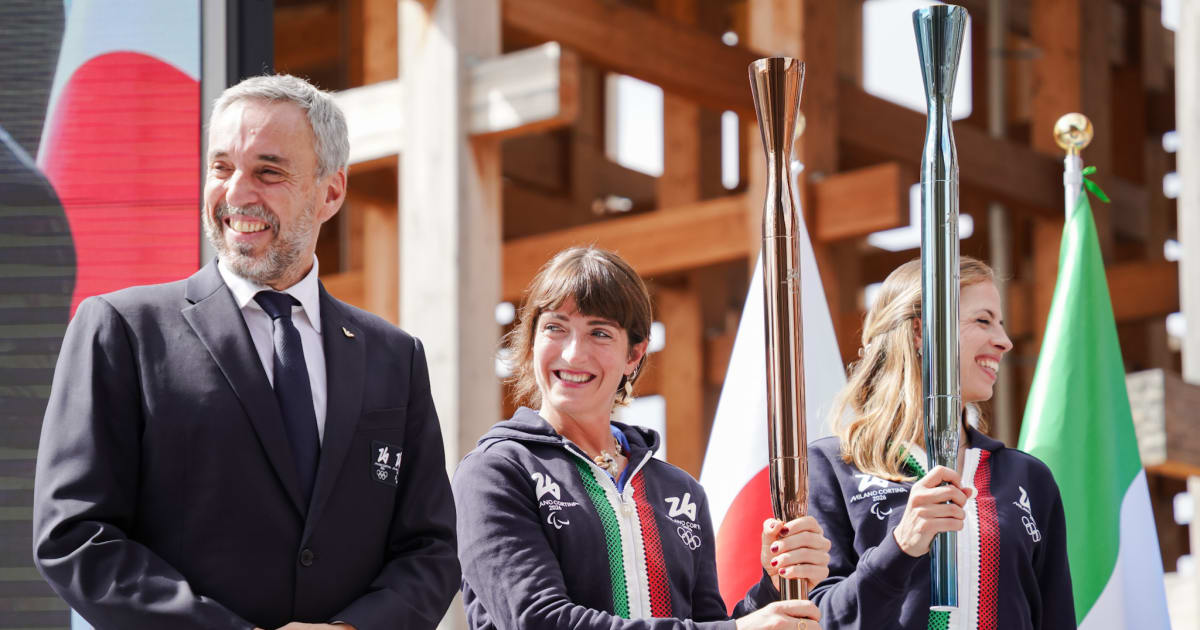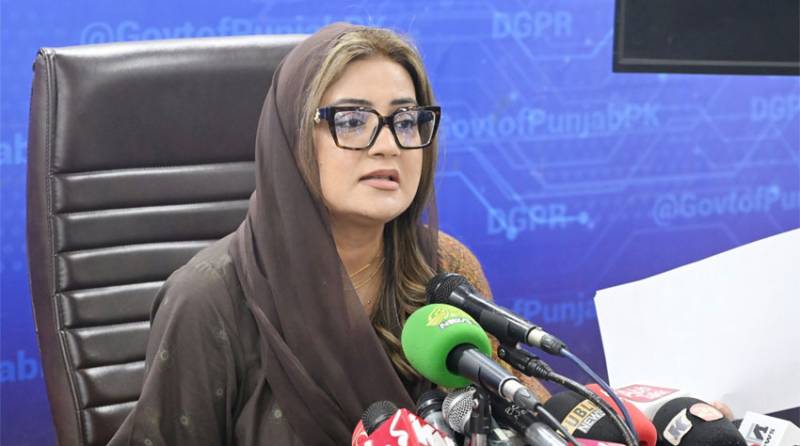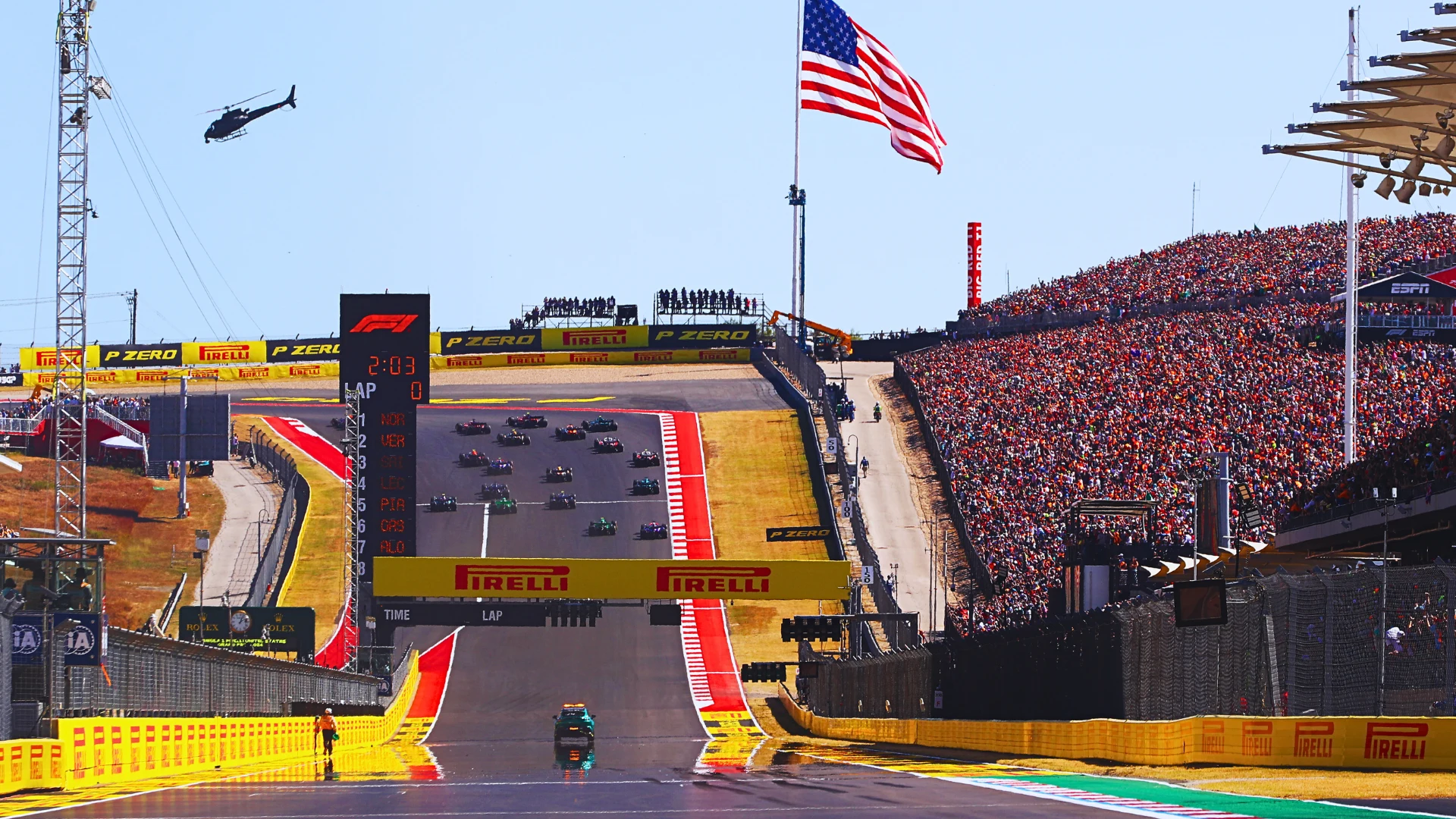Chinese researchers have developed an innovative textile that allows artificial intelligence systems to recognise voice commands by amplifying the electrostatic signals naturally produced during speech – a development that could…
Blog
-

Chinese scientists create smart fabric that enables AI to recognise voice commands
-

BNP Paribas Fortis European Open: a new tennis sponsorship in Belgium
S. K.: Our ambition is clear: BNP Paribas Fortis is the partner of tennis in all its dimensions. Promoting Belgian tennis is our mission. As proof, this year we supported 8 other international tournaments, in all…
Continue Reading
-

The Torches of Milano Cortina 2026 Take Center Stage at the Closing Ceremony of Expo 2025 Osaka
The Olympic and Paralympic Torches of Milano Cortina 2026 are returning home. On Monday, October 13, during the closing day of Expo 2025 Osaka, the Italy Pavilion hosted the Closing Ceremony of the international event, during which the Essential…
Continue Reading
-
Just a moment…
Just a moment… This request seems a bit unusual, so we need to confirm that you’re human. Please press and hold the button until it turns completely green. Thank you for your cooperation!
Continue Reading
-

Sennheiser’s HDV 820 headphone amp/DAC drops £600 in latest deal
Sennheiser is well known for producing some of the best headphones out there, but did you know it also designs and manufactures electronics designed to extract even greater performance from its premium audiophile headphones?
One of our…
Continue Reading
-

German product demand stable, Rhine supply tightens
News
10/10/25
Challenging fossil fuel talks continue ahead of Cop 30
Challenging fossil fuel talks continue ahead of Cop 30
Cop host Brazil embodies the nuances of depending on fossil fuels while shifting
to cleaner energy, writes Caroline Varin Edinburgh, 10 October (Argus) — Talks
about phasing out fossil fuels have gained momentum since the UN Cop 28 summit
in 2023, but translating pledges into policy remains difficult — especially for
economies reliant on oil and gas revenues. Nearly 200 countries agreed to a call
“to transition away from fossil fuels in energy systems, in a just, orderly and
equitable manner” by 2050 at Cop 28 in Dubai almost two years ago. The climate
summit was not the only forum at which countries agreed to do so. Similar
agreements were taken at G7 level and last year in the form of a UN pact by
heads of states and governments . Brazil’s Cop 30 director Ana Toni urges
parties to accelerate implementation. “A central element of this transition is
ensuring the availability of affordable and reliable low-carbon energy sources
to gradually and securely replace fossil fuels,” she told Argus. The discussions
are taking place. Beyond Oil and Gas Alliance (Boga) head of secretariat Sian
Bradley has recorded a clear shift since the Cop 28 call. “There is no
high-level political space where this is not raised as a topic, and that was not
the world we were in pre-Cop 28,” she told Argus. Boga, an international
alliance launched at Cop 26 in Glasgow, spearheaded by Denmark and Costa Rica,
is working to facilitate a managed phase-out of oil and gas production. The
initiative works alongside oil producers to understand their priorities and runs
a $20mn fund to assist developed countries in transition planning. So far, it is
supporting five countries — Nigeria, Brazil, Kenya, Colombia and Barbados. The
fund also seeks to support developing countries looking to reflect the Dubai
agreement in their nationally determined contributions (NDCs). Despite the
increase in visibility, the transition away from fossil fuels faces resistance
in the form of softening commitments, pressure from the US — the second-largest
greenhouse gas emitter, the largest consumer of oil, and which has left the
Paris agreement — and oil and gas firms’ strategy shifts . Last year in Baku, at
a Cop 29 that was dominated by difficult climate finance negotiations, parties
failed to agree on how to advance the implementation of the global stocktake
(GST), which features the call to transition away from fossil fuels. Fossil
fuels did not get a mention in the final unapproved draft of the discussions’
conclusions, although the draft did reaffirm the role of transitional fuels —
most likely natural gas — in the energy transition. Recently, a report led by
the Stockholm Environment Institute found that planned oil production is 31pc
above levels consistent with a 1.5°C pathway in 2030, and 260pc above by 2050.
For gas, production plans are 92pc above a level consistent with 1.5°C and 230pc
higher by 2050. The Paris agreement aims to keep the global rise in temperature
to “well below” 2°C above pre-industrial levels, while pursuing efforts to limit
warming to 1.5°C. Transition cramp Discussions are becoming more nuanced,
according to Boga’s Bradley. “Major oil and gas producers are not going to be
standing on a stage announcing they have halted licensing yet, but they are
asking questions behind closed doors,” she says. For Cop 30’s Toni, consumer
countries’ hesitancy in coming forward with plans stems “from the fear of being
left without reliable energy”, while producers question moving ahead while
global demand remains high, especially when these resources are vital to finance
their economies and social priorities. “Brazil itself reflects this dual
reality,” Toni acknowledges. “We are a global leader in clean energy — with
nearly 90pc of our electricity and 45pc of our energy coming from renewables —
and in sustainable fuels. At the same time, we remain an oil producer. That is
the reality of a world in transition.” Strategies for how the transition will
unfold are still lagging, Toni says. “The economic dimensions of the transition,
including improving transparency on fossil fuel subsidies, need to be addressed
to move forward, while protecting energy affordability and broader economic
stability,” she says. The fossil fuel discussions are not going away at Cop,
non-profit WRI’s director of international climate action, David Waskow, told
Argus , but the question of economic diversification — which is coming up in
various negotiation tracks, including the Just Transition Work Programme — must
be given more attention. This is an issue that Boga has worked on in the years
since its creation. The organisation has been running closed-door dialogues and
forums, with “most of the major oil and gas producers” and consumers, the IMF
and IEA, to work out what the transition means for long-term policy planning,
Bradley says. Writing on the wall “We have been asked to work with the group on
developing illustrative pathways to guide the transition, depending on costs of
production and other country factors,” Bradley says. Global net zero scenarios,
such as the IEA’s, exist, but some producers lack country-level pathways to
understand the timeframe for their transition, and whether they will be
producing in 15-20 years. “The writing is increasingly on the wall for the
higher-cost and the more vulnerable oil and gas producers, and they know that
they have to begin engaging with this issue in a meaningful way through their
energy and finance ministries,” she says. “The discussion is taking root in a
much more structural way.” The GST, an exercise to assess progress under the
Paris agreement, is also meant to inform new NDCs — the climate plans out to
2035 that countries are due to submit by Cop 30. “We are encouraged that over
100 parties, representing two-thirds of global emissions, have already submitted
their new NDCs or announced they would do so — and the majority of them have
pledges related to energy transition,” Cop 30’s Toni said. But major oil and gas
producers that have submitted plans, apart from the UK, are not yet talking
about the transition away from fossil fuels from a production point of view,
only from an emissions reduction perspective. Some fossil fuel producers that
are part of the G20 group — including India, Saudi Arabia, Indonesia and South
Africa — have yet to release new plans. Producers that think they will be in the
oil and gas market for longer will be slower to come forward, Bradley says. But
she points to notable shifts. Nigeria, while saying it will continue to develop
resources, recognises “the economic dilemma of the transition”, with fossil
fuels leaving the economy “highly vulnerable to price shocks and climate risks”.
It also talks about stranded assets and the need to protect workers and expand
non-oil sectors. Having this in the NDC of a major oil producer in the last
round of climate plans would have been unthinkable, she says. Fossil fuel talks
could also receive a boost at Cop 30 in the so-called action agenda. The
Brazilian Cop 30 presidency decided to use the Dubai conclusions as the spine of
its summit’s action agenda, and leverage existing initiatives — many including
governments — to bolster implementation. Each item under the GST will have its
own discussion group, and although it is not yet clear what the outcome of this
process may be, the action agenda has been positively received. “There has never
been a structured space for the transition away from fossil fuel in the action
agenda,” Bradley says. Boga is also part of the fossil fuel action group. “We
have now a presidency setting out the agenda and saying that [the transition
away from fossil fuels] is a fundamental part of the UNFCCC process.” Oil
production forecast scenarios wpa p3 legend.pdf Send comments and request more
information at feedback@argusmedia.com Copyright © 2025. Argus Media group . All
rights reserved.Continue Reading
-

Punjab government committed to people’s welfare: Azma Bukhari
Punjab Information Minister Azma Bukhari has said that the provincial government is taking concrete measures for the welfare of the people.
Talking to media in Lahore today, she said Chief Minister Maryam Nawaz is committed to ensuring the…
Continue Reading
-
Palestinian prisoners being released from Israeli jails-Xinhua
GAZA/JERUSALEM, Oct. 13 (Xinhua) — Israeli authorities have begun freeing Palestinian prisoners from jails as part of an exchange deal after Hamas released 20 Israeli hostages, Palestinian sources said on Monday.
According to the deal…
Continue Reading
-

5 storylines we’re excited about ahead of the 2025 United States Grand Prix
The final quarter of the 2025 season is upon us, as the Formula 1 paddock heads to Austin to kick-off a double-header in the Americas that also includes Mexico City. With the Drivers’ Championship picture getting tighter and multiple teams…
Continue Reading
-

BWF Denmark Open 2025: How to watch Loh Kean Yew live in action in Odense
After a break of three weeks, 2021 world champion Loh Kean Yew is back in badminton BWF World Tour action at the 2025 Denmark Open in Odense this week from 14–19 October, with selected rounds available to stream live Olympic Channel via…
Continue Reading